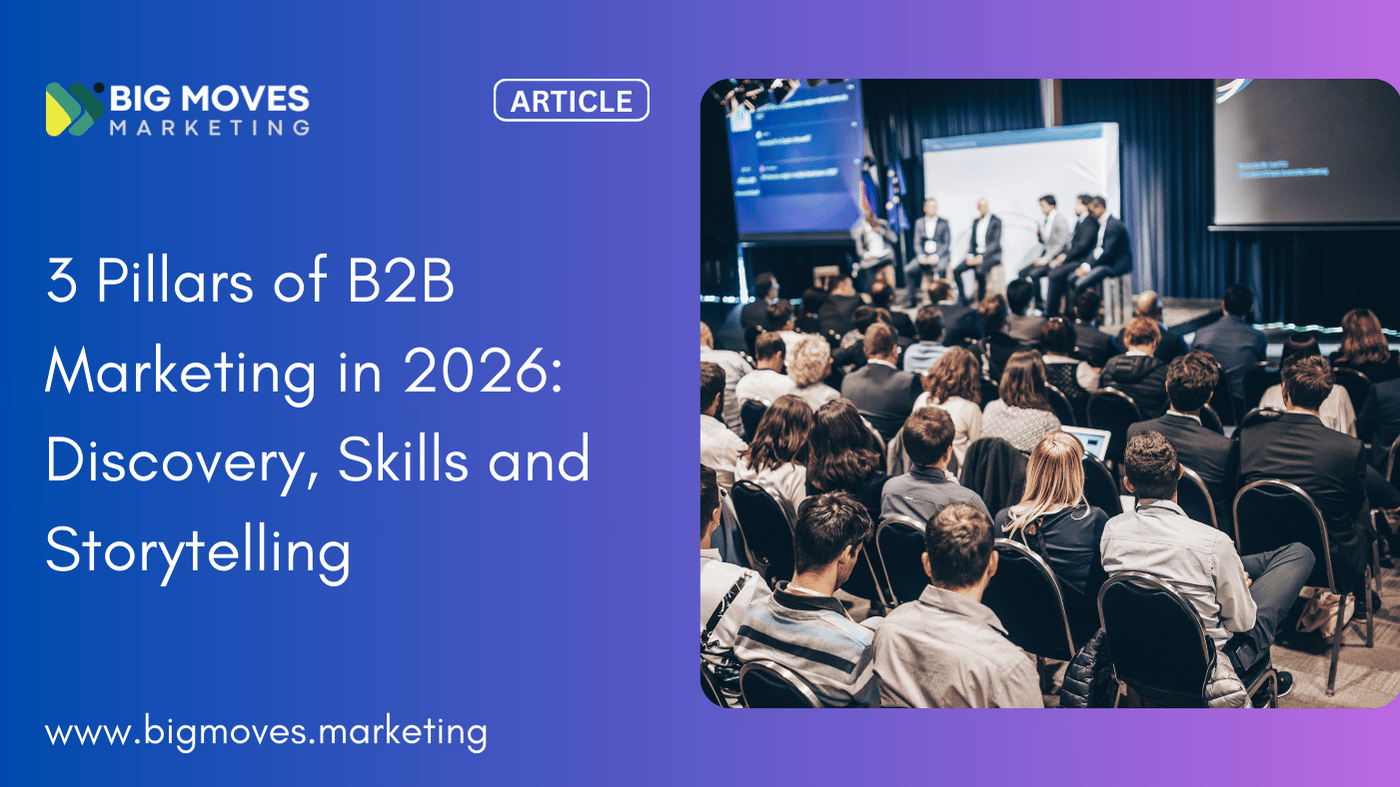The Impact of Influencers in B2B Marketing and Growth
May 18, 2025

The Impact of Influencer Marketing on B2B Companies in the US: Current Trends, Challenges, and Opportunities
Influencer marketing has traditionally been associated with B2C brands, featuring celebrities and social media personalities promoting consumer products. However, a significant shift has been taking place in the B2B landscape, where thought leaders, industry experts, and technical specialists are becoming increasingly valuable for companies looking to build credibility and connect with decision-makers.
According to recent research conducted by TopRank Marketing and Ascend2, B2B companies across the United States are increasingly incorporating influencer marketing into their overall marketing strategies.
This comprehensive study, which surveyed 404 marketing professionals working at B2B firms with 100+ employees, provides valuable insights into how the B2B sector is leveraging influencer relationships, what challenges they're facing, and which trends are shaping the future of this marketing approach.
The Current State of B2B Influencer Marketing

The research reveals that 76% of B2B marketers now consider influencer marketing to be either "important" or "very important" to their overall marketing strategy, marking a 12% increase from similar studies conducted in 2022. This shift reflects a growing recognition of the unique value that industry influencers bring to B2B marketing efforts.
Unlike B2C influencer marketing, which often prioritizes reach and engagement metrics, B2B influencer marketing emphasizes expertise, credibility, and the ability to speak knowledgeably about complex products or services. The typical B2B influencer isn't a celebrity or social media star but rather an industry expert, thought leader, or seasoned professional with deep domain knowledge and established credibility within specific business sectors.
The survey found that 82% of B2B organizations are now allocating budget specifically for influencer marketing initiatives, with 58% planning to increase that investment in the coming year. This demonstrates a growing commitment to influencer marketing as a strategic component of B2B marketing efforts rather than an experimental tactic.
How B2B Marketers Plan to Improve Their Influencer Marketing Strategies
The TopRank Marketing and Ascend2 research identified several key areas where B2B marketers are focusing their efforts to enhance their influencer programs:
1. Developing More Strategic Influencer Relationships (67%)
Rather than pursuing one-off collaborations, B2B marketers are increasingly focused on building long-term, mutually beneficial relationships with key industry voices. This approach allows for deeper integration of influencer content with brand messaging and creates more authentic advocacy.
"The days of transactional influencer engagements in B2B are over," says Lee Odden, CEO of TopRank Marketing. "Today's successful programs are built on authentic relationships where both the brand and the influencer provide value to each other and, most importantly, to the audience."
2. Improving Measurement and ROI Tracking (61%)
B2B marketers recognize the need for better metrics to demonstrate the business impact of their influencer programs. While engagement metrics remain important, there's a growing emphasis on tracking influence throughout the customer journey, including lead generation, pipeline acceleration, and revenue attribution.
Companies are implementing more sophisticated attribution models that can connect influencer content consumption to downstream business outcomes, helping to justify increased investment in these programs.

3. Integrating Influencer Content Across Marketing Channels (57%)
Rather than treating influencer marketing as a standalone tactic, successful B2B marketers are integrating influencer content across multiple channels and touchpoints. This includes incorporating influencer perspectives into webinars, white papers, blog content, social media campaigns, and even sales enablement materials.
This integrated approach amplifies the reach of influencer content while providing multiple opportunities for target audiences to engage with expert perspectives throughout their buying journey.
4. Expanding Influencer Types and Diversity (53%)
B2B companies are broadening their definition of "influencer" to include internal subject matter experts, customers, partners, and industry analysts alongside traditional external influencers. This diverse approach allows brands to showcase multiple perspectives and reach different segments of their target audience.
There's also an increased focus on ensuring diversity in influencer representation, with 47% of respondents stating that diversity, equity, and inclusion considerations are now "very important" in their influencer selection process.
Which Influencer Content Types Are Delivering the Best Results?

The research identified several content formats that are proving especially effective for B2B influencer marketing:
1. Co-Created Long-Form Content (72%)
Collaborative content such as research reports, white papers, and in-depth guides consistently deliver the strongest results for B2B marketers. These formats leverage the influencer's expertise while addressing the complex information needs typical in B2B purchase decisions.
For example, software company Salesforce regularly partners with industry experts to produce comprehensive research reports that combine the company's proprietary data with expert analysis and commentary, creating uniquely valuable content assets.
2. Video Content (68%)
Video continues to gain importance in B2B influencer programs, with formats ranging from expert interviews and panel discussions to product demonstrations and technical tutorials. The perceived authenticity and personal connection possible through video make it particularly effective for conveying complex B2B messages.
3. Webinars and Virtual Events (61%)
Live or on-demand events featuring influencer participation remain highly effective for B2B audiences. These formats allow for deeper exploration of topics and create opportunities for direct audience engagement.
4. Social Media Content (58%)
While perhaps more associated with B2C influencer marketing, strategic social content still plays an important role in B2B programs. LinkedIn dominates as the platform of choice, with 87% of respondents rating it as their most important social channel for influencer collaboration.

Challenges B2B Marketers Face with Their Influencer Programs
Despite growing investment and strategic importance, B2B marketers report several persistent challenges in executing effective influencer programs:
1. Identifying the Right Influencers (65%)
Finding influencers who possess both relevant expertise and the ability to effectively engage target audiences remains the top challenge. Unlike consumer marketing, where follower counts and engagement metrics provide clear indicators, B2B influencer identification requires deeper analysis of subject matter expertise, audience alignment, and content quality.
Many organizations are turning to specialized influence identification tools and services to help navigate this challenge, with 42% of survey respondents reporting they now use such tools.
2. Measuring Program Effectiveness (59%)
Despite improvements in measurement approaches, quantifying the business impact of influencer programs remains challenging. B2B marketers struggle to connect influencer content to metrics that matter to executive leadership, such as pipeline contribution and revenue influence.
"The measurement challenge is particularly acute in B2B because of longer sales cycles and multiple decision-makers," notes Julie Fleischer, CMO at Ascend2. "Sophisticated marketers are implementing multi-touch attribution models and leveraging marketing automation platforms to track influence throughout the buyer journey."
3. Securing Adequate Budget and Resources (54%)
Many B2B marketers report difficulty securing sufficient resources to execute their influencer programs effectively. This includes both financial investment and the internal time and expertise needed to manage relationships and content creation.
4. Managing Influencer Relationships at Scale (48%)
As programs expand beyond a handful of influencers, the complexity of relationship management increases significantly. Maintaining consistent communication, coordinating content creation, and ensuring timely feedback become increasingly challenging without dedicated resources and processes.

Emerging Trends in B2B Influencer Marketing
The research highlighted several emerging trends that are reshaping B2B influencer marketing:
1. AI-Enhanced Influencer Programs (76%)
B2B marketers are increasingly leveraging AI tools to enhance various aspects of their influencer programs. This includes using AI for influencer identification and analysis, content optimization, performance prediction, and even creating synthetic versions of real influencers for scalable content creation.
2. Employee Advocacy Integration (68%)
Organizations are recognizing the powerful intersection of employee advocacy and influencer marketing. By amplifying external influencer content through employee networks and elevating internal subject matter experts as influencers, companies can significantly extend their reach and credibility.
3. Always-On Influencer Programs (62%)
Rather than campaign-based approaches, leading B2B organizations are moving toward continuous influencer engagement. These "always-on" programs maintain ongoing relationships with key influencers, allowing for more natural integration of brand messages and more consistent audience engagement.
4. Micro and Nano Influencer Focus (57%)
While major industry names still have their place, many B2B marketers are finding greater success with micro-influencers who have smaller but highly engaged and relevant audiences. These partnerships often deliver higher engagement rates and can be more cost-effective than working with the biggest names in an industry.

Conclusion
The TopRank Marketing and Ascend2 research clearly demonstrates that influencer marketing has evolved from an experimental tactic to an essential strategic component for B2B marketers. As investment continues to grow and strategies become more sophisticated, the lines between influencer marketing, content marketing, and thought leadership are increasingly blurring.
For B2B organizations looking to build or enhance their influencer programs, the research suggests focusing on developing authentic, long-term relationships with relevant industry voices; creating substantive, co-branded content that delivers real value to audiences; and implementing measurement approaches that connect influencer activities to business outcomes.
As one survey respondent noted, "Influencer marketing in B2B isn't about quick wins or viral moments—it's about building credibility and trust through authentic expert voices that help our customers navigate complex decisions."
How is your organization incorporating influencer marketing into your B2B strategy? The research suggests that those who aren't may soon find themselves at a competitive disadvantage as this powerful approach continues to gain momentum.
Download the full report on TopRank Marketing: https://www.toprankmarketing.com/guide/b2b-influencer-marketing-research-report/
%20-%20Alternate.svg)


%20-%20white.svg)